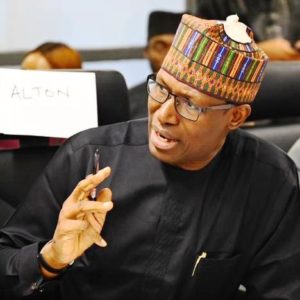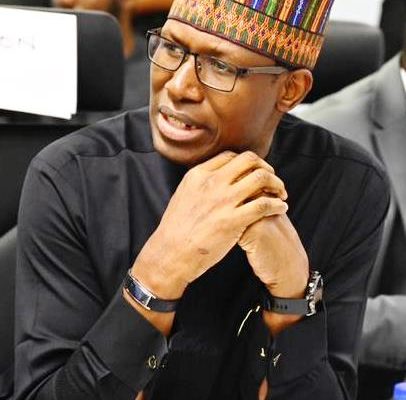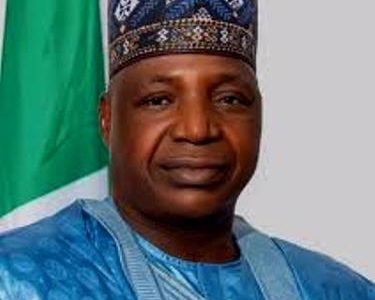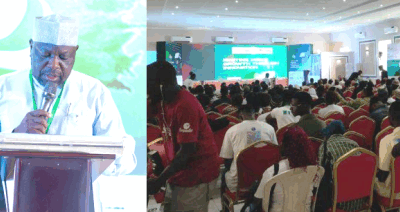Gbenga Adebayo, Chairman of the Association of Licensed Telecoms Operators of Nigeria (ALTON), expresses concern over the telecom sector’s sustainability amid rising inflation and government intervention in pricing. He warns that government’s reluctance to let market forces dictate pricing could deter investor interest, leading to stagnation. Adebayo urges the adoption of a Critical National Infrastructure policy to safeguard telecom infrastructure from vandalism, emphasizing its benefits for subscribers and the economy. He attributes the persistence of the NIM-SIM issue to Nigerians’ need for a shift in attitude towards personal data. As a seasoned industry figure and Chairman/Group CEO of CNSSL, with founding credentials at African Broadband Limited, including ownership of Royal FM, the first private FM radio station in Ilorin, North Central Nigeria, Adebayo shares his insights with IT Edge News, Olusegun Oruame and Oluwaseyi Ajadi.
The country is in a fairly difficult situation, and I think, by extension, the industry is in a fairly precarious situation without being alarmist.
With an extremely weak naira, heavy losses recorded by telecom operators, and with investor’s funds shrinking, how are telcos planning to mitigate this problem? Also, what do you think the government can do to intervene?
Thank you for having me, and I also must take the opportunity to thank you for your consistency. Thank you for the work that you do to support the industry, and I would commend you for your work and service over many years. The country is in a fairly difficult situation, and I think, by extension, the industry is in a fairly precarious situation without being alarmist.
RELATED: ALTON Chairman calls on Nigerian government to tackle telecom sector challenges, prevent collapse
The fact remains that the high cost of production is a major factor that we have been dealing with. Considering the number of sites running on diesel fuel and limited alternative energy, the high cost of diesel is no doubt one major factor. Probably the environmental factor that the country is dealing with. We are within the same national economic ecosystem and so problems confronted by other sectors are also the same as what the telecom industry is facing. But ours is more serious because the cost of input has gone significantly and astronomically high while the sale of services has remained the same. Therefore, the current pricing regime in the industry is not sustainable, and the fear is that if something is not done, we may have an industry that will start shutting down. Already, a number of smaller players are finding it difficult to do anything. Now, you can see that the bigger ones are now raising alarms about the losses that are being declared.
So it leaves us in a fairly bad situation as an industry, and I think the time is now more than ever before. The government has to do something consciously and deliberately to address the telecom sector, and a few quick things that the government can do first are: We’re not going to ask for subsidies as is the case for the energy sector, but we’re going to ask that the industry allow operators to price right. The current price in this regime is not sustainable in the face of inflation that we face. And so I think that’s the first one that the government must address. We must allow the forces of demand and supply to play out. We must allow market forces to determine pricing and not by regulating pricing.
The government has to do something consciously and deliberately to address the telecom sector …. We must allow market forces to determine pricing and not by regulating pricing.
For us to have a sustainable industry, in the face of the challenges that we face, the operators must be allowed to price right. We must have the right tariffs. Our current tariff regime is not sustainable. The second is the protection of the infrastructure that we have. We’re struggling today to meet certain levels of service and it’s worth noting that there are now many cases of willful damage to communication infrastructure. You may have noticed last week that we had blackouts in some parts of the country. And in particular, one of the members had come to complain about the damage to their fiber infrastructure done, in a particular instance, by a construction company working for the government.
This kind of damage should not be allowed to occur in the first instance; it is avoidable. The second instance is that it is deliberate, and that just goes to speak to the vulnerability of the infrastructure that we have, and so the government must do deliberately more to protect infrastructure, and that goes again to speak to this issue of Critical National Infrastructure that we have been talking about. Now will that stop vandalism? The answer is no. Will it stop willful damage? Yes, because we will now be mindful that there will be consequences for actions when they happen. So these are basically things that I see at the moment, and there’s a need for stakeholders to begin to look at issues more differently. Otherwise, you know, the current regime is not sustainable.
To have a sustainable industry….The government must do deliberately more to protect infrastructure, and that goes to speak to this issue of Critical National Infrastructure.
When you say getting the right pricing, it means if the government can remove subsidy because they want the right pricing for oil in the petroleum sector, refusing right pricing in the telecom sector is tantamount to forcing operators to subsidize telecom services as they are selling below operating costs?
Absolutely. Absolutely. What is good for the goose is good for the gander. So if we do say that the government is saying the price of petrol oil has to be increased, yeah, I certainly align with your view, to the extent that the government considers the pricing of petrol oil to be improper before now and so subsidy was removed because the government thinks it is only fair and only sustainable to price right. What is good for the goose is good for the gander. So if we do say that the government, on the one hand, says we have to remove subsidies because it’s only the right thing to do, ideally, in the same spirit, the government should limit the interference with telecom operators. In the issue of pricing in particular, they should allow market forces to determine pricing. So having to regulate pricing to keep up with regulatory requirements, you know, is actually at variance with the objective of fair market forces or fair market practices. So I think in this regard, the government itself is not being fair by not allowing them to price right.

Adebayo: Allow market forces to determine pricing
I would want to leave it where it is from an operator’s perspective, but from a subscriber’s perspective, is the consumer not being overstretched?
But that’s not caused by the operators; there are other factors leading to the high cost of living and depleting people’s disposable income. So we shouldn’t blame and shouldn’t take the consequences of that on network operators. Otherwise, you are hurting another industry entirely. So if you solve one problem in one industry, you create another problem in another industry, considering that today telecom is the bedrock of the digital economy. And I think the government should be careful when touching this industry, the reason being that if you don’t allow industries to price right, the current price regime again is not sustainable. If the government continues to touch it, it will come to a point where it will be in stagnation and when that happens, it will impact negatively on the important players you are seeing now and what the big players are seeing in terms of numbers. Who will then come and invest in this economy?
Who will come under the current regime to say that now we want to put another hundred million dollars into the network? Who will do it? So you come to a point where you just leave the network to operate as it is. You don’t do expansion; you don’t do anything. Just keep the lights and the light bulbs on. Don’t do anything other than keep the bulbs on. So you don’t want that. In a technology industry that is dynamic, you don’t want that to happen. Otherwise, there will be stagnation.
If you don’t allow industries to price right… it will come to a point where it will be in stagnation and when that happens, it will impact negatively on the important players
Why is the NIN-SIM linkage still an issue despite several deadlines to address it?
The issue of NIN SIM is something that’s a bit complicated, to the extent that it has to do with societal behavior. The process is very simple. Go to the NIMC office of the National Identity Management Commission. Go and obtain a NIN number and be registered as a citizen, step number one. Step number two: go to the network operators. If you have had an old number, you are expected to have done SIM registration, meaning that you have registered your name against your SIM card. Bring these, or if you haven’t done that, go to the operator and go and buy a SIM card and register the SIM card. Bring your NIN records to the operators. Operators enter the NIN records in that database. They send your records to the National Identity Management Commission to verify that yes, it is you. And it’s all clear—all good to go.
Historically, a lot of people had numbers before the NIMC’s NIN mandatory compliance. You recall that the industry did extensive SIM registration, meaning that we tried to register each person against their SIM card. Again, I assume you know that when the industry became fully deregulated, Nigerians were hungry for services. And everybody went to procure a SIM. I mean, it’s like we have been starving; we have been straying from communication service for many years. Everybody likes progress.
So the issue of registration was actually not a factor because we needed the service: give you a name, give you an address, pay money, get a SIM card, buy the phone, and we are good to go. It brought its own problems because the challenges are that there are many, many people making calls, and nobody knows who owns what number. And then the FEC [Federal Executive Council] mandated that you must do SIM card registration, meaning that you must now register your SIM card against your credentials, and it was done, which was very, very successful; in fact, the industry demonstrated competence, capacity, and capability at the time of SIM registration.
Years later, the government came and said you had to do a NIN. And you have to link this to your NIN for security reasons with your SIM card record. And there came the issue. And we told people to provide their name so that we could add it to the record or that you have with us as operators. The first 40 million+ people who have been disconnected have just refused to provide anything since 2022 when the government raised the alarm that your line will be disconnected and withdrawn from provider services from April 2022. It’s almost now—one year and 10 months or thereabout. And then these people on these lines are placed on ‘Receive Only’ meaning they cannot make calls until they provide SIM and names to their network operators; they still didn’t do the needful. Now why did it not have an impact? Maybe it didn’t have an impact because of one-way traffic. The reason is that a lot of SIM cards are simply for digital devices, MiFi, Wi Fi, tracking devices, modems, so they’re not necessarily subscribers who are making voice calls because they are still active on the network; they can do data, SMS, and other data applications. So those subscribers may not necessarily feel it. Now that the campaign has been on since then, go and provide your NIN to your network operator and have it documented, and they didn’t do it; it was just a behavioral issue or challenge. So now these 40 million people have been disconnected. So we have the first cleanup. Don’t forget that the numbers actually belong to the government. We’re only trustees of these numbers. So the government says you are not worthy of being a subscriber to a national network. Therefore, we will disconnect the call because we do not know who you are or where you come from. The second cleanup is that we have people who have provided their NIN to the operators but there is a disparity in the records.
The records of the SIM card provided at the SIM registration are different from the records provided at the NIN registration. For example, if your name is John Ambrose, your first name is John, your surname is Ambrose, and your date of birth is available. On your NIN record, you report yourself as Ambrose John, when those records are compared, the question will come: Are you the same person? For them to know that you are the same person, you must go to your network operator to validate that yes, I am the same person, or go to the NIMC service and say I am known as John Ambrose, but now I want to be known as Ambrose John. So if there is that disparity in the names, these records do not harmonize, and you need to go back and have it corrected. It is likely that people will send somebody to do SIM registration. Some people have sent their driver’s details on the record. When you bring your NIN record to the network operator, they will see your name. Yes, it’s your name. But the face is not the same. Some have obtained numbers for their house helps, so it is your name and picture, but the line is being used by your house help. So when the house help goes to bring in her own name, which she would have obtained by herself, bring it to the network operator. The operator will say this is not your name. So this line doesn’t belong to you; you need to do that harmonization.

Adebayo: NIN SIM is a bit complicated because it has to do with societal behavior. The process is very simple.
Some will require going back to the SIM record, going back to NIN, or taking a court affidavit, as the case may be. Now, these people are also in the same category of improper record, record disparity, and by the 15th of April, if they have failed to harmonize their records, they will be disconnected. So, to go back to your question, it is the behavior of our people that has made it impossible.
There are other issues with the NIMC authorities because of capacity and all of that, but that’s not coming to the core now because the people who are now disconnected have not provided any NIN. Those who are disconnected may have provided their NIN but there is disparity in their records. So, it has to be you; it can’t be you or someone like you, and we say that the primary identification record is the NIMC record. The second is your SIM card, driver’s license, and other things. All other things have to build on your primary record, which is the NIMC record, and that has to align with everything that you have: your date of birth, bank information, parents information, your photograph, your biometrics, and all of that. All of our secondary records identification we write on that, but they have to harmonize
We’re more concerned about the social impact and the security implications of people not providing NINs for their SIM records.
Thank you for being with us on this interview and for the knowledge you’ve shared. Because you mentioned that about 40 million subscribers have been blocked. would you see this as a business loss or a step closer to sanitizing the sector?
For reasons of national objective and security consideration in the national interest, economic consideration is not a factor for us. So we’re not even looking at the numbers in terms of business numbers. We are more concerned with those that are unidentified, so that surpasses any business interests. It’s in our best interest to ensure that everybody is identified and known so we’re not looking at losses in revenue. Not at all! We’re more concerned about the social impact and the security implications of people not providing NINs for their SIM records. We are better off having lower numbers than a mass of numbers that you can’t account for. At the end of the day, the consequences of their actions will have an impact on your business.
A few of my friends have been getting text messages saying that they should go and link their NIN even after they have done so. What do you have to say regarding this?
If they have done it, they are still getting the same message because of some problems with the integration of records. So they need to go back to their network operator or go back to the NIMC office to address it. They shouldn’t ignore those messages because if they ignore the messages, when the time come they will fall in the bracket of disconnection and their service will be withdrawn. And like I just said, we believe that there is a discrepancy in their records. We believe that if the records are not harmonized, they’re not verifiable; it is as good as not having the records, so they need to go back and have them properly sorted.
5G is an evolution we must follow up on…. As a technology-driven industry, we need to continue to embrace changes, and this is one of such changes.
So is 5G visible in terms of rollout from a business perspective, and in the face of shrinking consumer income?
Absolutely. It’s technology. I mean, if you look at migration from 2G to 3G, 3G to 4G, and now 4G to 5G. It’s an evolution we must follow up on, so you know it’s one mobile network and is one to go back to; that’s why it’s called the Global System for Mobile Communications. It has one protocol around the world. So we need to continue to embrace technological evolution, be in line with modern trends, and be able to take on networks and global subscribers. Modern features and services that are so required are present on a national level. So it actually doesn’t leave us with a choice. Actually, it’s only a matter of time. Imagine If we’re still using 2G today, some countries are now switching off 2G sites. Imagine we’re only on 3G; some countries have started switching off 3G sites, which means at some point, even certain devices will not be made to work on those platforms again. As a technology-driven industry, we need to continue to embrace changes, and this is one of such changes. To let you know, we have some live sites across the country. A number of the players are providing 5G. You know, three of them—MTN, Airtel, and Mafab are doing it.
The migration from 3.5 to 4G does not appear to be as challenging as 5G has been in terms of financing and to go by your opening statements on right pricing, it would appear the cost of providing 5G service is for now, too high. The reality on ground has not matched the enthusiasm?
We need to look at it from two sides: deploying network and upgrading network on one side. Terminal devices, which are end-user devices, are on the other side. So, yes, operators will have high capital deployed because it’s new technology, and with the optics, there will be fewer numbers. Once the volume grows, the unit will come down. So for the network operators, you have to invest in that back-end core infrastructure, which operators have to do any way in order to be technology-valid compliant. For end users, the cost of devices today is higher, but it will remain so because there are new technologies. And as volume grows, experience has shown that as volume grows, these prices will come down. So, it doesn’t leave us with much options. Actually, the uptake is slow and the 5G is more expensive than previous technology because it’s a more advanced technology to support a lot of applications driving artificial intelligence and the Internet of Things. Because of the capabilities of this technology, it will naturally be a bit more expensive than the previous legacy technologies.





























